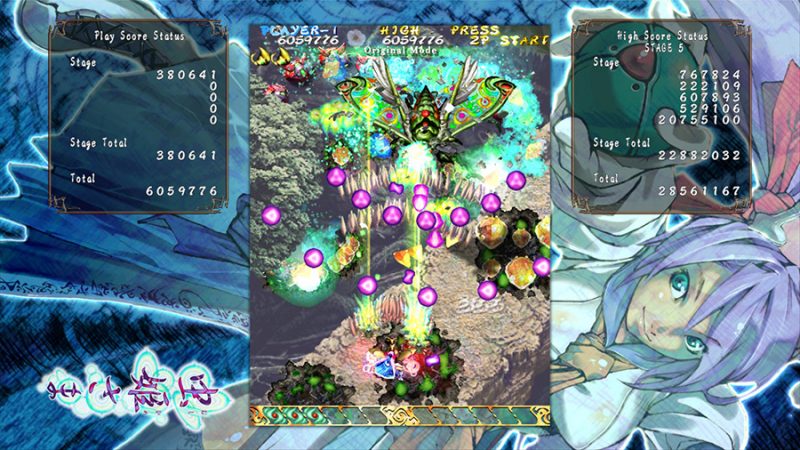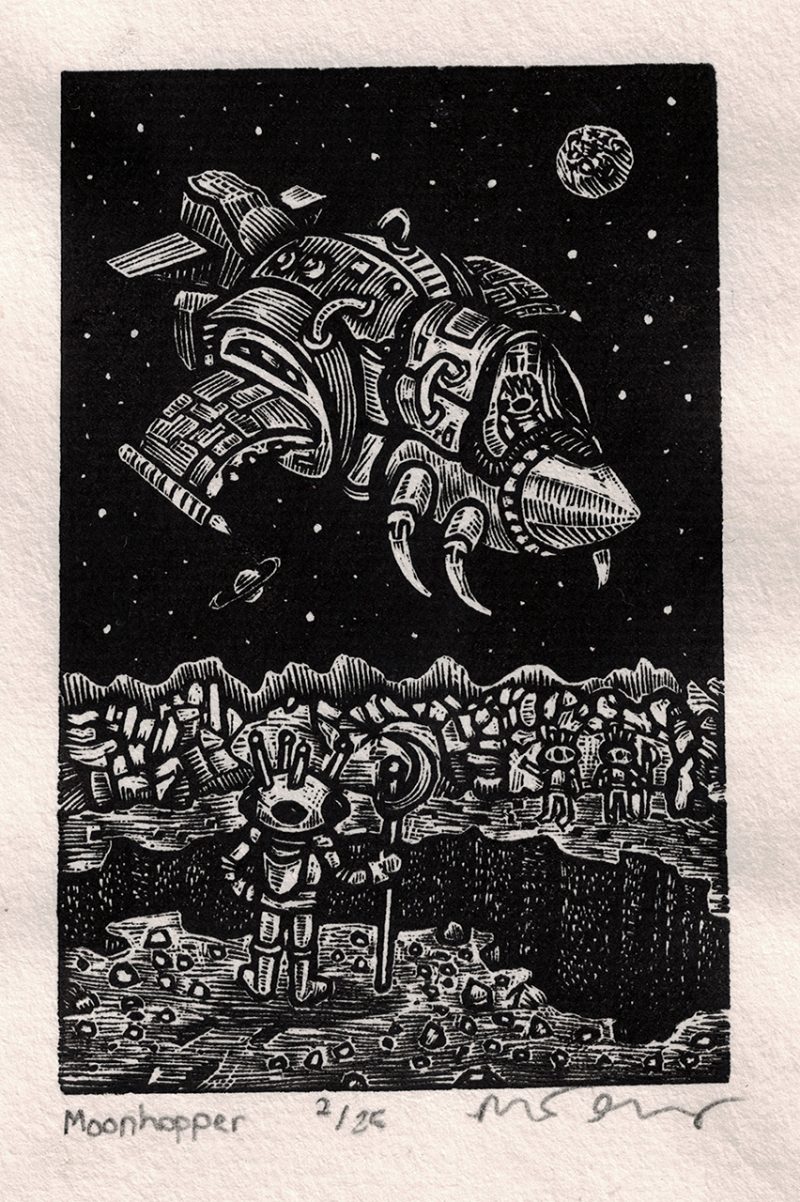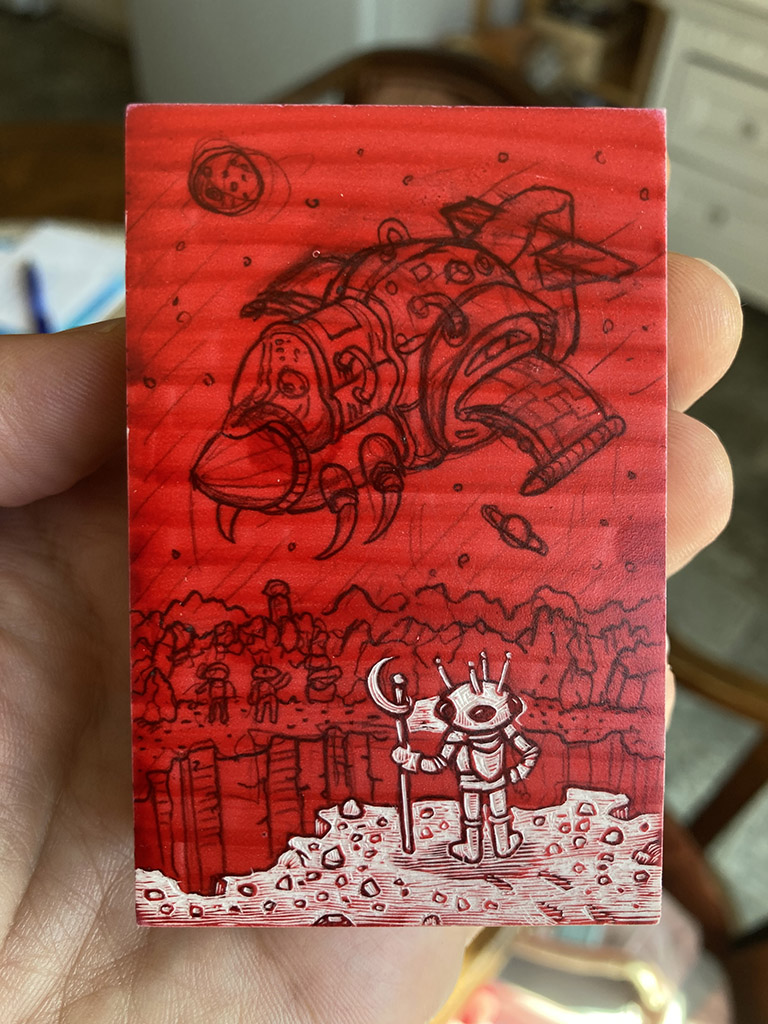
Lately I have become obsessed with bullet-hell shmups like this. I’d see these images of these impossible patterns of projectiles and wonder how anyone could maneuver a ship around them for more than a few seconds. Most of my experience with them has been through Mame arcade emulation with a special interest in ones with detailed pixel art. No matter the title, I could always manage to get to the end of the maybe the first level and would then be absolutely destroyed after that.
Mushihimesama is a classic Cave arcade shmup, but here, in the Steam PC port of the game, there are several modes of play including a forgiving novice mode. This reduced difficulty level is still painfully hard on my Gen-X reflexes but I managed, over the course of many hours of play, to just about master the entire game through to the end.
This is where the appeal of these games ultimately lies: the gradual mastery of the mechanics, levels and patterns of bullets. It’s not easy but it always feels like you’re getting a little bit farther after every punishing defeat, Plus, the skills I have lean on the baby mode have helped me get a little further on the more aggressive difficulties. I will never master the hardest levels but it’s within the realm of possibility.


A teenage girl is obsessed with a new wave pop star. She writes him letters, follows him to Munich, finally meets him, and hilarity ensues. I’m leaving out a few details, but that’s basically the whole plot. Seems stupid but it somehow managed to keep me engaged through most of it. There is a Kraftwerk style vibe to R’s sound and look that make this film a bit more watchable than it had any right to be.

What a mouthful of a title. Anyhow, this book is a case against post-modernism and its application within the academy and modern political discourse. Post-modernism is confusing by design and I agree its a pretty awful ideology. Reading about post-modernism isn’t much easier than reading post-modernist writing itself. As with all these vaguely political non-fiction books I have read recently, they wait until the last chapter to lay out their solutions and say anything interesting.

The most notable thing from this 1964 Japanese sci-fi movie is silly the starfish alien designs. The point of the story is for the aliens to warn Earth of an impending disaster, but they go about it in the most roundabout way possible. The, at the eleventh hour, they just save everyone completely negating the entirety of the movie’s narrative. The scenes of the aliens on their ship must be inspired by German expressionist films. The rest of the movie is pretty dull.










